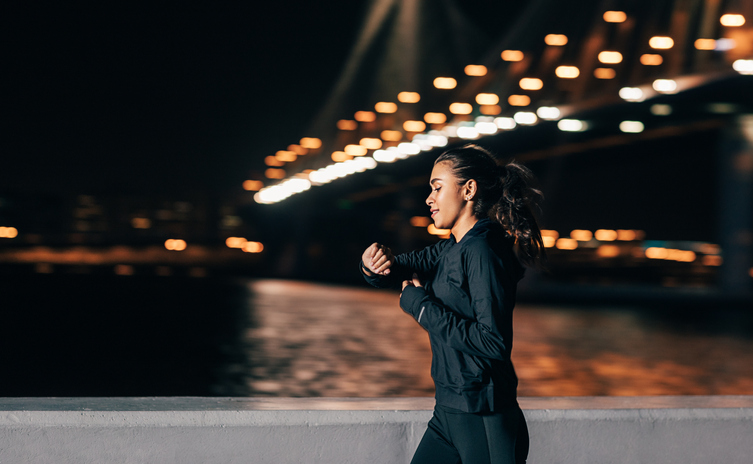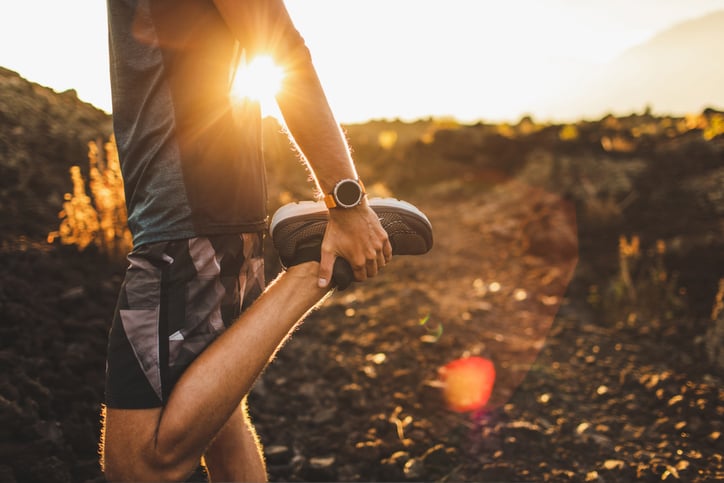Between work, family, errands, sleep, and hobbies, we all struggle to find time to workout. Morning workouts are great to get it “out of the way”, but not everyone has the energy to work out that early. Evening workouts you might have more energy, but after a long day at work? It can be hard to get going.
When no time during the day seems to fit your schedule, should you just pick one and go with it? Are there better benefits to working out first thing in the morning, or at night?
While both times of the day have their own pros and cons, for most people, the right time is what best fits their lifestyle.
The best time is whenever you can.
First and foremost, the best time to work out is whenever you can. One small workout, no matter the time of day, is better than no workout at all. At the end of the day, the bottom line is to just get moving, and to develop some type of consistency about it.
If you work all day, and then have to go home and take care of errands or the family, then maybe a morning workout is your best option.
If your day starts as early as 5 or 6 in the morning, then maybe finding some time in the afternoon or in the evening is a better option.
If you struggle to find the time, start small. Can you work a 20 or 30 minute jog into your day, instead of scrolling on your phone? Once you get used to that, can you increase it to an hour?
Morning workout Pros
According to a few studies, morning workouts do have a slight edge. People who exercise in the morning are often more consistent because it leaves less room for excuses. It’s the first thing on your to do list, which means nothing else gets in the way. This can also help you establish a better routine.
Morning workouts also may help improve your sleep cycle. Even though waking up early might seem hard at first, research has shown that your circadian rhythm shifts so you are more alert in the mornings and tired at night, allowing you to fall asleep easier.
If you’re working out first thing in the morning, chances are you aren’t eating much beforehand. Exercise in a “fasted” state like this is proven to burn more fat than if you had a big meal beforehand.
Morning workouts also seem to help boost productivity. With energy levels, focus, and alertness heightened, you’ll probably have a better day at work and be in a better mood.
Morning workouts Cons
When training in a fasted state as mentioned above, you could potentially burn more fat. But you could potentially be low on fuel too. A lot of people depend on a meal or snack beforehand for pre workout fuel. Being low on fuel might equate to a less intense workout.
It might also take you longer to warm up if you’re not used to that type of movement that early. Working on your stiffness and flexibility might add to your total workout time.

Evening Workouts Pros
Throughout the day, your core temperature rises. Which means by the afternoon and evening, you are already warmer –not just physically but mentally speaking as well. Your strength, endurance, and muscle output is heightened during this time, and it takes longer to reach fatigue or exhaustion. So chances are, you are going to get a much better workout later in the day.
Testosterone has been shown to be produced more during an evening workout than morning workout. And it’s not a bad thing. Although men have more of it naturally, this hormone is important for strength and muscle gains.
Are you prone to watching TV, snacking, drinking, or lazing about during the evening after work? Well, working out during this time instead might help replace some of those bad habits if you’re looking ot make a change.
Evening Workout Cons
One downside of getting worked up in the evening is that it might have an effect on your sleep. If you’re tired enough, you might get a good night’s sleep. But for some, you might stay awake longer than usual after high intensity exercises.
